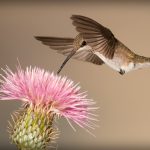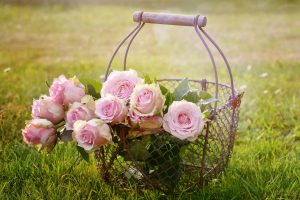Looking for a miracle cure for just about anything that can threaten your garden or lawn? Just look in the kitchen pantry and pull out that bottle of vinegar. It seems that white distilled vinegar is ideal for whatever ails your garden, your lawn, and the pots that hold plants. In fact, it’s an ideal substance for all sorts of things if you and your family like to spend time outside during the warm months.

White distilled vinegar is the ideal fix for any problems that are lawn or garden related.
(Courtesy: Elycefeliz from flickr.com)
Vinegar and a little water are ideal for improving the pH balance of your soil. For example:
· Vinegar helps plants that grow well in acidic soil. This includes azaleas, rhododendrons, hydrangeas, and gardenias. Mix a cup of white distilled vinegar to a gallon of tap water.
· Add white distilled vinegar to the garden soil to counterbalance lime.
· Increase the acidity of soil by adding white distilled vinegar to the watering can.
Vinegar is a great solution for killing weeds and pests. Here are some examples:
· Kill weeds and grass growing in unwanted areas by pouring a full-strength of white distilled vinegar on them.
· Stop ants from gathering on your lawn by simply pouring white distilled vinegar on the areas where they are congregating.
· Eliminate anthills by pouring in white distilled vinegar.
· Kill slugs by spraying a mixture of one part water with one part white distilled vinegar.
· Catch moths with a mixture of two parts white distilled vinegar with one part molasses, put the solution into a tin can and hang the can on a tree.
· Get rid of rabbits that are chowing down on your plants with cotton balls soaked in white distilled vinegar placed in a 35mm film container. Poke a hole in the top of the container and place in the garden.
· Mix a concoction of 2 teaspoons of vinegar in brewed chamomile tea and spray on plants that have mold or fungus.
Use vinegar to clean birdbaths; flower vases; clay, glazed and plastic pots; houseplants and saucers; spigots, tools, screws or bolts; outdoor furniture and picnic tables; plastic patio furniture; outdoor fountain pumps; hummingbird feeders; and terra cotta pots.
Clean birdbaths with undiluted white distilled vinegar, and then rinse well.
Fill a flower vase with a water line with a solution of half water and half white distilled vinegar or soak a paper towel in white distilled vinegar, stuff it into the vase and contact it with the water line.
Soak clay, glazed, and plastic pots with a mixture of half water and half white distilled vinegar to rid them of stains and mineral crusts.
Soak spigots, tools, screws or bolts with undiluted white distilled vinegar overnight or for several days to get rid of rust.
Sanitize outdoor furniture and picnic tables with a cloth soaked in white distilled vinegar.
Clean plastic patio furniture with a mixture of 1 tablespoon of white distilled vinegar to 1 gallon of water.
When cleaning an outdoor fountain, soak the pump in white distilled vinegar to rid it of mineral deposits.
Use white distilled vinegar instead of soap or detergent and water to clean a hummingbird feeder. The soap or detergent can leave a harmful residue that could harm the birds.
Soak terra cotta pots with a solution of 1 cup of white distilled vinegar, 1 cup of chlorine bleach, and 1 gallon of warm water to remove mold, then scrub the pots with a steel wool pad.






